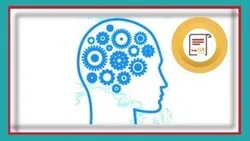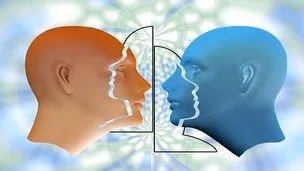
Neuroplasticity And CBT Complete Certification Course 
This Neuroplasticity and CBT Complete Certification Course is designed to help you understand the brain's ability to change, remodel and reorganize for purpose of better ability to adapt to new situations. You will learn about neuroplasticity and neurogenesis, post-traumatic stress disorder (PTSD), obsessive-compulsive disorder (OCD), depression, anxiety and panic attacks, and how to use CBT to change your behaviour in future. Through this course, you will gain insight into how your thoughts, attitudes, beliefs and assumptions can contribute to emotional problems such as depression and anxiety. You will also learn how to identify and question distortions in your thinking, and how to “stand back” from your thinking to consider situations from different viewpoints. This course is suitable for anyone who wants to learn more about neuroplasticity and CBT, and how to use them to improve their mental health. ▼
ADVERTISEMENT
Course Feature
![]() Cost:
Cost:
Paid
![]() Provider:
Provider:
Udemy
![]() Certificate:
Certificate:
Paid Certification
![]() Language:
Language:
English
![]() Start Date:
Start Date:
On-Demand
Course Overview
❗The content presented here is sourced directly from Udemy platform. For comprehensive course details, including enrollment information, simply click on the 'Go to class' link on our website.
Updated in [August 13th, 2023]
What does this course tell?
(Please note that the following overview content is from the original platform)
CBT is an effective treatment for many psychological conditions, Neuroplasticity brain’s ability to change, remodel
What you'll learn:
When we learn something new, we create new connections between our neurons.
Neuroplasticity refers to the brain’s ability to adapt
neuroplasticity and neurogenesis
post-traumatic stress disorder (PTSD)
obsessive-compulsive disorder (OCD)
depression
anxiety and panic attacks
Enable you to change your behaviour in future.
CBT is an intensive, short-term, problem-oriented approach. It was designed to be quick, practical and goal-oriented and to provide people with long-term skills to keep them healthy. The focus of cbt is on the problems that come up in a person’s day-to-day life. cbt helps people to look at how they interpret and evaluate what is happening around them and the effects these perceptions have on their emotional experience.
Childhood experiences and events, while not the focus of cbt, may also be reviewed. This review can help people to understand and address emotional upset that emerged early in life, and to learn how these experiences may influence current responses to events
According to cbt, the way people feel is linked to the way they think about a situation and not simply to the nature of the situation itself
In cbt, you learn to identify, question and change the thoughts, attitudes, beliefs and assumptions related to your problematic emotional and behavioural reactions to certain kinds of situations.
By monitoring and recording your thoughts during situations that lead to emotional upset, you learn that the way you think can contribute to emotional problems such as depression and anxiety. In cbt, you learn to reduce these emotional problems by: • identifying distortions in your thinking • seeing thoughts as ideas about what is going on rather than as facts • “standing back” from your thinking to consider situations from different viewpoints
For cbt to be effective, you must be open and willing to discuss your thoughts, beliefs and behaviours and to participate in exercises during sessions. For best results, you must also be willing to do homework between sessions.
CBT is an effective treatment for many psychological conditions. These include: • mood disorders, such as depression and bipolar disorder • anxiety disorders, including specific phobias (fear of animals, heights, enclosed spaces), panic disorder, social phobia (social anxiety disorder), generalized anxiety disorder, obsessive-compulsive disorder and posttraumatic stress disorder • bulimia nervosa and binge eating disorder • body dysmorphic disorder (body image) • substance use disorders ( smoking, alcohol and other drugs).
Neuroplasticity can be defined as brain’s ability to change, remodel and reorganize for purpose of better ability to adapt to new situations. Despite the fact that the concept of neuroplasticity is quite new, it is one of the most important discoveries in neuroscience. The fact is that neural networks are not fixed, but occurring and disappearing dynamically throughout our whole life, depending on experiences. While we repeatedly practice one activity such as a sequence of movements or a mathematical problem, neuronal circuits are being formed, leading to better ability to perform the practiced task with less waste of energy. Once we stop practicing a certain activity, the brain will redirect these neuronal circuits by a much known 'use it or lose it’ principle. Neuroplasticity leads to many different occurrences, such as habituation, sensitization to a certain position, medication tolerance, even recovery following brain injury
Our brains are truly extraordinary; unlike computers, which are built to certain specifications and receive software updates periodically, our brains can actually receive hardware updates in addition to software updates. Different pathways form and fall dormant, are created and are discarded, according to our experiences.
When we learn something new, we create new connections between our neurons. We rewire our brains to adapt to new circumstances. This happens on a daily basis, but it’s also something that we can encourage and stimulate.
it was discovered that neurons could reorganize after a traumatic event. Further research found that stress can change not only the functions but also the structure of the brain itself
Although related, neuroplasticity and neurogenesis are two different concepts.
Neuroplasticity is the ability of the brain to form new connections and pathways and change how its circuits are wired; neurogenesis is the even more amazing ability of the brain to grow new neurons
Neuroplasticity is one fundamental process that describes any change in final neural activity or behavioral response, or;
Neuroplasticity is an umbrella term for a vast collection of different brain change and adaptation phenomena.
We consider the value of this course from multiple aspects, and finally summarize it for you from three aspects: personal skills, career development, and further study:
(Kindly be aware that our content is optimized by AI tools while also undergoing moderation carefully from our editorial staff.)
Skills and Knowledge Acquired:
By taking this Neuroplasticity and CBT Complete Certification Course, you will acquire knowledge and skills related to neuroplasticity and CBT. This includes understanding the brain's ability to adapt and change, the concept of neuroplasticity and neurogenesis, how to identify and question distortions in thinking, and how to use CBT to treat psychological conditions such as PTSD, OCD, depression, anxiety, and panic attacks. You will also learn how to use CBT to change your behaviour in the future, and how to use neuroplasticity and neurogenesis to improve your ability to learn and adapt.
Contribution to Professional Growth:
This Neuroplasticity and CBT Complete Certification Course provides a comprehensive overview of the principles of neuroplasticity and CBT. It covers topics such as the brain's ability to adapt, neuroplasticity and neurogenesis, post-traumatic stress disorder (PTSD), obsessive-compulsive disorder (OCD), depression, anxiety and panic attacks, and how to change behaviour in the future. Through this course, professionals can gain a better understanding of how the brain works and how to use CBT to effectively treat psychological conditions. This course can help professionals to develop their skills in understanding and addressing emotional upset, identifying distortions in thinking, and learning to stand back from their thinking to consider situations from different viewpoints. By gaining a better understanding of neuroplasticity and CBT, professionals can improve their ability to provide effective treatment for psychological conditions, thus contributing to their professional growth.
Suitability for Further Education:
This Neuroplasticity And CBT Complete Certification Course provides an in-depth look at the concepts of neuroplasticity and CBT. It covers topics such as neuroplasticity and neurogenesis, post-traumatic stress disorder (PTSD), obsessive-compulsive disorder (OCD), depression, anxiety and panic attacks, and how to change behaviour in the future. The course also provides an overview of how CBT works, and how it can be used to treat various psychological conditions. The course also covers the concept of neuroplasticity and how it can be used to help the brain adapt to new situations. This course is suitable for those looking to prepare for further education in the field of neuroplasticity and CBT.
Course Provider

Provider Udemy's Stats at AZClass
At the 2023 EdTech Breakthrough Awards program, Udemy got 'Ongoing Education Solution Provider of the Year' award.
Stack Overflow's Developer Survey ranks Udemy as the most popular platform for learning programming for two consecutive years (as of 2023)
Udemy and its certificates are acknowledged by lots of employers.
AZ Class hope that this paid Udemy course can help your Cognitive Psychology skills no matter in career or in further education. Even if you are only slightly interested, you can take Neuroplasticity And CBT Complete Certification Course course with confidence!
Discussion and Reviews
0.0 (Based on 0 reviews)
Explore Similar Online Courses

Chemical Thermodynamics I: Thermodynamics and Statistical Mechanics

Tableau A Quick Start Guide

Python for Informatics: Exploring Information

Social Network Analysis

Introduction to Systematic Review and Meta-Analysis

The Analytics Edge

DCO042 - Python For Informatics

Causal Diagrams: Draw Your Assumptions Before Your Conclusions

Whole genome sequencing of bacterial genomes - tools and applications

Cognitive Psychology: Employee and Customer Behaviour

Cognitive Behavioral Therapy CBT Life Coaching Certification


Start your review of Neuroplasticity And CBT Complete Certification Course